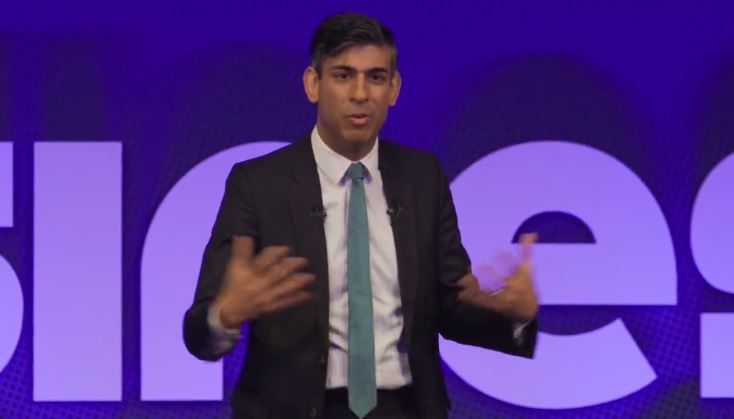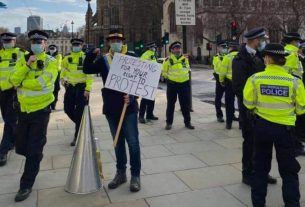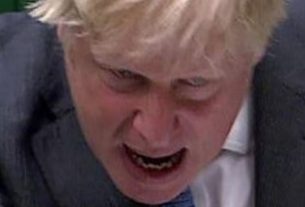For some prime ministers, losing more than 1,000 seats in the local elections would be fatal. Rishi Sunak calls it “disappointing”.
Having effectively disenfranchised two million probable non-Tory voters with the mendacious photo-ID requirement to combat (non-existent) electoral fraud, Sunak’s party still took an almighty kicking at the polls.
However, despite the devastating local election results for the Tories and particularly for Sunak, the PM will take some succour from the fact that the results will not be dissected too intensely given attention today is invariably elsewhere.
Suffice to say, if as much attention and care to detail, planning and precision – never mind money – was taken in running the UK’s public services as there has been paid to putting a crown on an old man’s head, the people of Britain would be living much better, healthier, richer and safer lives than those now endured after 13 years of Tory rule.
Local elections in England only
Using the local elections as a yardstick to project the outcome of a general election exposes once again the UK’s sham democratic system where the first-past-the-post system forces voters to vote tactically – if at all – rather than express their actual preference.
However, it still provides an indication and the BBC’s projected national share of the vote, based on the England only local elections, puts the Tories on just 26%. That’s just one-in-four voters backing the party of an unelected PM who remains committed to his gung-ho pursuit of policies that no-one voted for because flights to Rwanda, leaving the ECHR, tax cuts/pension provisions for the top 1% with tax rises for everyone else, curtailing the right to protest and many other policies, were never part of any manifesto.
The same BBC projection puts Labour on just 35% and the Lib Dems on a massive 20% with other parties – including the Greens – making-up the remaining 19%.
It’s incredible to think but it could have been even worse for Sunak given the local elections were held in England only, which is traditionally far more Tory than the rest of the UK. Had local elections been held in Wales and Scotland, Sunak may well have already been packing his bags given the reaction to the results from within Tory ranks.
Sunak’s attempt to explain away his party’s poor results – even before the votes were counted – by blaming the chaos that permeated Number 10 before him and his predecessors’ “box set drama” has not convinced all members of the Conservative party.
Indeed, one Tory quoted by the Telegraph has more than a smidgen of “pot and kettle”, with the source saying: “Sunak can’t blame these results on last year’s chaos.
“He started that chaos by knifing the most successful Tory election winner in 50 years.
“Sunak’s claim that stability has been restored is shot to bits. These results are on track to be catastrophic for the party and worse than before the change of leader.”
Sunak continues to be variably cast as the snake in manoeuvring to force Johnson’s eviction from Downing Street, and as a Brutus figure by the right of the party for knifing their Caesar in the back. The former chancellor-cum-PM is blamed for leading the cabinet’s mass resignation that finally topple Boris Johnson by submitting his letter to quit first (even though his actually followed Sajid Javid’s).
The local elections were always going to prove a massive marker on which Sunak’s progress would be measured. Much more so than the fawning from Britain’s right-wing media which has been doing its best to legitimise an unelected prime minister who was rejected as leader by his own party members who preferred Liz Truss.
The fawning by the red-top tabloids of the PM and the soft glove interrogation of his government by the new right wing TV channels – many programmes on which are actually presented by top Tories – of the UK’s most right-wing PM in modern history has bolstered Sunak’s standing. So much so that Labour has been rattled enough by the perceived threat of a semi-competent PM to respond with attack ads targeting Sunak specifically, and personally.
However, Sir Keir Starmer’s party may be better served leaving the attacks on the PM to the Tories themselves. They are far more ruthless politically and will do anything to keep power (which is shorthand for controlling the public purse and deciding how Britain’s billions are spent).
Take former Tory MEP David Campbell Bannerman for example. The leader of the pro-Johnson Conservative Democratic Organisation (CDO) was unequivocal in attributing blame for the Tories disastrous local election results, telling BBC Radio 4’s Today programme: “It is, I’m afraid, the leadership.
“I think the way that we got rid of Boris, I’ve spoken to quite a few people who regret that on the doorstep. We’re putting up taxes, the highest taxes in 70 years, and there’s a price to be paid for that, and we want to get back to traditional Conservative policies.
“It isn’t about ‘bring back Boris’, by the way, it is about party democracy. But it is true that a lot of our members still like and rate Boris, as do many of the public, and given the scale of the challenge ahead, you know, we shouldn’t rule that out as an option longer-term.”
The longer-term for CDO Tories equates to less than 18 months given that’s the expected date of the next general election. There are more local elections next year – and inevitable by elections before then.
A similar performance could see yet another Tory PM toppled by the Conservative party’s ache to maintain power whatever the cost.




